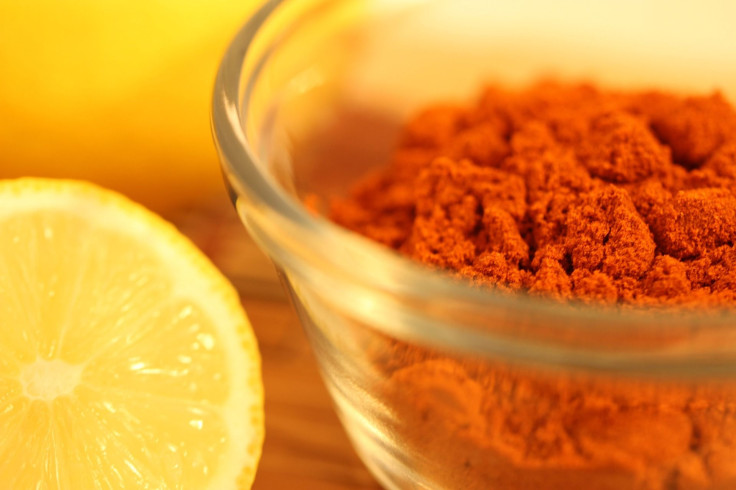How To Naturally Improve Taste: 6 Cooking Ingredients To Boost Flavors In Healthy Food

Beyond eating good-for-you fruits, vegetables, meats, and fish, home chefs can also incorporate spices and toppings that turn up dishes’ flavors and health benefits. Recently, casual salad chain Sweetgreen made just that decision — they took the axe to Sriracha and bacon, eliminating them from their menu as a part of their Make America Healthy Again campaign.
“The second ingredient in Sriracha is sugar,” Sweetgreen said in a statement. “So we removed it from our recipes, replacing it with the natural, sugar-free heat of dried chiles.”
While hot sauce is typically low in calories with little or no sugar, Sriracha stands out as one of the worst, with 1 gram per teaspoon. Sweetgreen made a healthful decision about the salad toppings they offer customers, and that’s a good example to follow. Dried chiles, cayenne pepper, and chili powder are powerfully flavorful and low in calories, making them ideal sugar- and sodium-free spices.
Many natural spices provide a wide variety of benefits that range from weight management to digestive health. Toss in some of these tasty extras selected from nature’s to improve the flavor profile of any dish.
Check out these six natural ways to add a boost of flavor:
1. Avocado:
This creamy fruit can replace mayo as a spread on sandwiches, be served on top of eggs, or get mixed in with pulled chicken salad.
Avocados are packed with omega-3 fatty acids and nearly 20 vitamins and minerals, including dietary fiber, potassium, and vitamins K, E, C, B5, and B6.
2. Garlic
This delicious, aromatic herb has been used as a natural medicinal ingredient for centuries and may prevent cancer and lower cholesterol and blood pressure, ultimately benefiting the heart. Garlic also aids in digestion and speeds up metabolism.
Chop or crush the cloves to release a sweet, pungent smell and add them to tomato sauce bases, vegetable sautés, or baked chicken to create a flavorful dish.
3. Basil
An herb that often makes its appearance in Mediterranean and Italian recipes, basil can be chopped up and added to ripe tomatoes with mozzarella and balsamic glaze, stewed in with a broth or sauce, or diced and mixed with olive oil and toasted pine nuts to create pesto.
This calorie-free ingredient provides a generous source of vitamin A, which helps to improve eyesight and supports the growth of cartilage, bone, and stomach tissue.
4. Shallots
These petite members of the onion and chive family are a valued and delicate vegetable to add into rich dishes where they offer up plenty of health benefits for those watching their weight and saturated fat intake. Shallots provide fiber and antioxidants that have been shown to lower the risk of stomach and colorectal cancers.
Slice off the ends of the shallots and let them caramelize in a pan to get crispy and sweet and add them on top of grilled chicken breasts. Their fine, mild taste brings out the flavors in side dishes, such as cooked green beans, Brussels sprouts, and carrots.
5. Paprika
Even a small dash of paprika is packed with beneficial nutrients including carotenoids, which benefit eyesight and prevent light damage to the retina. One tablespoon of paprika contains more than 100 percent of the daily recommended amount of iron and vitamins A and E.
Paprika is best combined with other spices such as cayenne and garlic, and is often used to bring out the flavors in chicken breast, fish, and lean red meats. Spread a little extra virgin olive oil onto cubed sweet potatoes and carrots and sprinkle on a layer of paprika, or use it to flavor a tray of roasted, peeled chickpeas for a side dish or healthful snack.
6. Lemon
Aside from adding a twist to a cold summer beverage, lemons can also serve as kitchen staples. Perk up a slightly bland pasta or risotto dish with a squeeze of the fruit’s tart juice and a dash of pepper. Slice and pit a lemon and add it to stews or layer it on fish and chicken to keep the meat juicy and fresh.
The healthy nutrients in this popular citrus fruit include vitamin C, folic acid, antioxidants, and potassium — it’s no wonder the Academy of Nutrition and Dietetics recommend including it in everyday dishes and drinks. And, as a bonus, lemon is also useful outside the body for skin, nails, and hair.



























